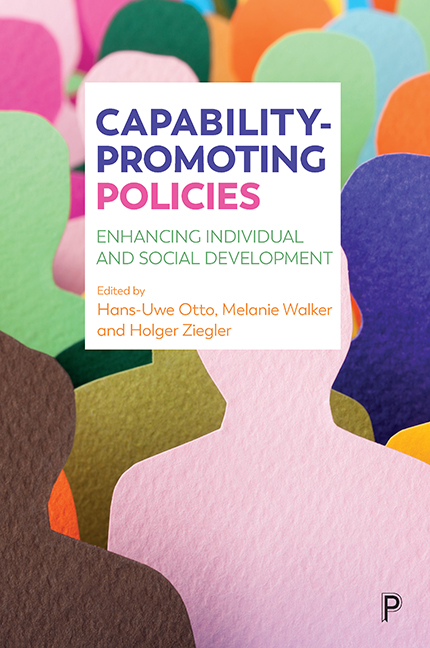Seven - Culture, equity and social wellbeing in New York City
Published online by Cambridge University Press: 12 April 2022
Summary
This chapter reports on research undertaken to apply the capabilities approach to cultural policymaking in New York City. The authors used previous work in Philadelphia to develop a conceptualisation of social wellbeing based on a multidimensional phenomenon. The project grows out of a belief that cultural engagement is a core capability in its own right. Furthermore, the chapter argues that cultural engagement can facilitate the achievement of other capabilities, what Wolff and De-Shalit (2007) characterise as ‘fertile functionings’. Finally, the chapter suggests two amendments to the conceptualisation of capability-promoting policy: one, to consider the role of immediate social context – that is, neighbourhood effects – in assessing impact; and, two, to consider the potential tension between theories of social justice and democratic consent. Before addressing these concerns, we first discuss the political context within which the current research has taken place.
Although New York City's 8.5 million residents barely keep it in the top 20 world cities in terms of population, New York remains a centre for culture and economic life for the United States and the world. The local politics of the city cast a long shadow on trends in the rest of the United States. During the 1990s, mayor Rudy Giuliani was spokesman for the ‘revanchist’ city in which social elites sought to reassert dominance over seemingly uncontrollable urban populations (Smith, 1996). After the attacks of 11 September 2001, New Yorkers elected billionaire Michael Bloomberg, who presided over the increasing economic division of the city as a wave of displacement drove many poor and working-class families from suddenly ‘hot’ neighbourhoods. The 2013 mayoral election suggested a new political departure in the wake of the recession and its aftermath. The voters selected a progressive, Bill de Blasio, who made the promotion of social justice the hallmark of his campaign.
New York City has a history of making significant commitments to the arts. The city's Department of Cultural Affairs is the second largest public funding agency in the US, surpassed only by the National Endowment for the Arts. Bloomberg was a supporter of the arts – contributing some of his own fortune to local institutions – but the rationale for policy remained focused on culture's contribution to the economy and its role in promoting tourism (Forman, 2015).
- Type
- Chapter
- Information
- Capability-Promoting PoliciesEnhancing Individual and Social Development, pp. 131 - 144Publisher: Bristol University PressPrint publication year: 2017



